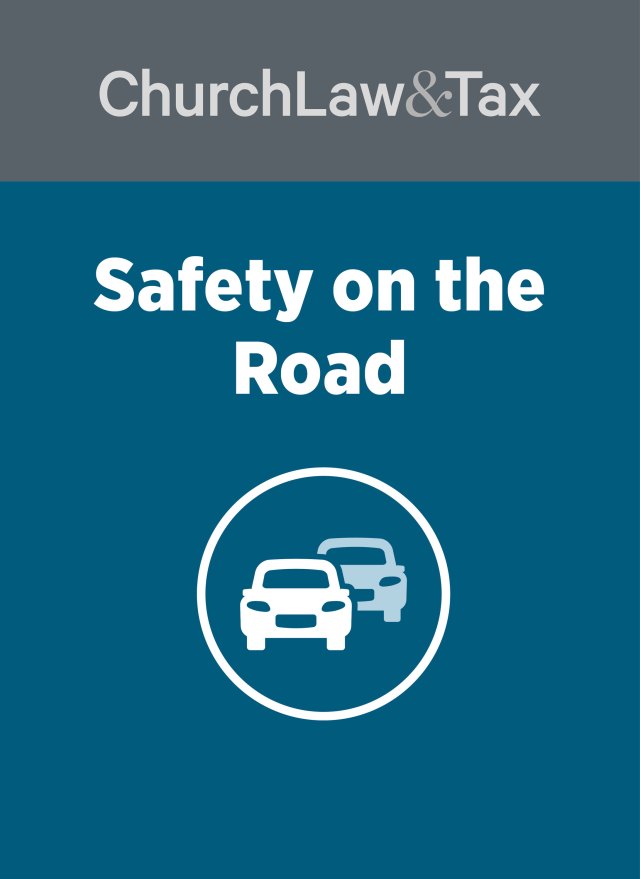Our church owns a small bus that has 18 seats. While the bus is used mostly for local transportation, we occasionally use it for out-of-town trips. Some of these trips go across state lines. Some members of our church have asked if the bus needs to be certified by the U.S. Department of Transportation sticker. Does it?
Any vehicle designed to carry more than 15 passengers (including the driver), that is used across state lines, and that does offer transportation services for hire, is a “private motor carrier of passengers” (PMCP) subject to Federal Motor Carrier Safety Regulations (FMCSRs). Even if you do not operate your bus in interstate commerce, you may still be subject to state regulations similar to the FMCSRs.
As a private motor carrier of passengers, your vehicle will fall into one of two groups: business or non-business. In most cases, church-owned PMCPs are non-business, meaning that you provide private, interstate transportation of passengers that is not in the furtherance of a commercial enterprise. The Department of Transportation lists “churches, scout groups and other charitable organizations that may purchase or lease buses for the private transportation of their respective groups” as examples of non-business PMCPs.
As a PMCP, you must meet certain requirements of the FMCSRs. These requirements differ slightly depending on if you are classified as a business or non-business PMCP. Business PMCPs must meet (1) eight driver qualification requirements; (2) seven “driving of motor vehicle” requirements; (3) eight “parts and accessories” requirements; (4) “hours and services” requirements; and (5) inspection, repair, and maintenance requirements. Non-business PMCPs are subject to these same requirements, except that they are exempt from the recordkeeping requirements under the driver qualification provisions.
Note that a United States Department of Transportation (USDOT) number is required if you are an interstate PMCP regardless of business or non-business status. No fee is assessed to obtain a USDOT number. You must complete Form MCS-150 (Motor Carrier Identification Report) to obtain a USDOT number. The form can be found at
safer.fmcsa.dot.gov. Form MCS-150 can be completed online or you can print a copy of the form to complete and mail to the address indicated. If you do not have access to the Internet, you can call the Federal Motor Carrier Safety Administration at 800.832.5660 to have the form mailed to you.
Cell phones and cars can be a dangerous mix.
Did you know motorists who talk on cellular phones are as much of a threat behind the wheel as drunken drivers? According to a 2006 study at the University of Utah, the level of driver impairment between talking on a cell phone and driving while intoxicated are alarmingly similar. Whether a driver uses a handheld phone or a hands-free model, the conversation presents a significant distraction that increases the risk of an accident.
Most states already have legislation in place to curb or prohibit the use of cell phones while driving.
Does your ministry have a cell phone policy? If not, it might be a good idea to create one. Here are some guidelines:
Turn It Off. Urge your drivers to turn off their cell phones when they get behind the wheel of a ministry-owned vehicle. This will drastically decrease the likelihood that they will use their phone while driving.
Post Safety Warnings. Use decals or stickers to post safety warnings like these in your ministry’s insured vehicles:
-
Pull off the road to use the cell phone.
-
Ask a passenger to oversee the phone while driving.
-
Let incoming calls go to voice mail. Return these calls when you reach your destination.
-
Keep cell phone conversations short when they are absolutely necessary.
-
Do not attempt to talk while driving in heavy traffic.
Encourage Driver Safety Training. Require all of your employees and volunteers to participate in a driver safety course prior to getting behind the wheel of a ministry-owned vehicle.
Richard R. Hammar is an attorney, CPA and author specializing in legal and tax issues for churches and clergy.

